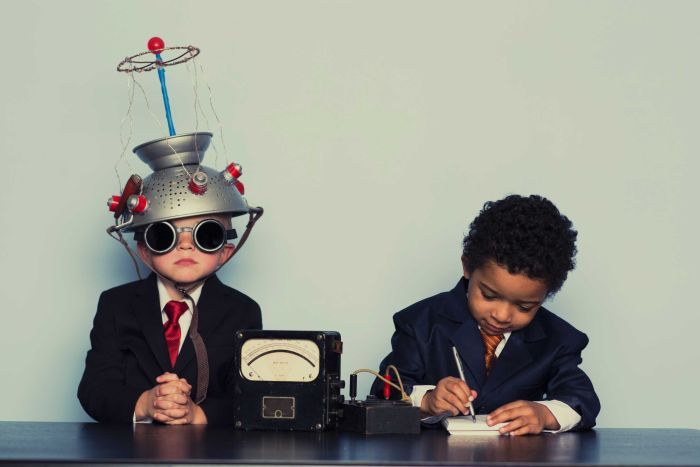Consulting Topics
Our Consulting Approach to Wellness

Our view of organizational and human capital development, sustaining that growth and then optimising value-adding engagement is an integrated action-learning consulting model by Dr Mark with two key human activities-goals of knowledge and wisdom that provides the client (person, couple, team, organization) with new insight and a broader-realistic way forward. We conduct consulting by way of presentations, small group work, break-out sessions, lunch and learns, walk and talks, online and or in person scenarios to stimulate curiosity and learning. At Centre for Stress Management we integrate the neuroscience perspective called "knowing" - in other words - "I went for consulting and I know a interesting new things and better remember few older important things." There is value here from a short-term perspective of acquiring new knowledge and recalling old knowledge (better) if you will, but it then begs a more critical growth-minded question in today's short-minded/daily business cycle: So now what? The answer lies in what differentiates our consulting courses and programs from others by way of the neuroscience of "wisdom." In short, our action learning consulting by way of knowledge and wisdom embedded in all our courses and programs is active in restoring, sustaining and enhancing each client's state of lifelong learning as a consistent well-being habit for greater work and personal life performance.
Knowledge is the learning of something in a new day and/or recalling something accurately from yesterday. Wisdom is the understanding of how that knowledge can best serve the well-being of a person (living and maintaining a healthy personal life) and the well-being of an organization (sustaining and growing a successful business life).
We do not see consulting as a "contract for services," but instead, an investment by the person or an organization to a continuous process of quality improvement. From a business perspective, the consulting will approach the processes of knowledge and wisdom to help organizations "grow bigger, become better, add more value and/or develop something new." In other words, "We Will." From a human capital perspective, the consulting will integrate the processes of knowledge and wisdom to empower individuals to "enhance resilience, strengthen competencies, grow their character strengths, and create well-being habits." In other words, "I an." With a mindset of "I Can" (the individual's brain) and an organization culture of "We Will" (the company brain), the way forward becomes (more) understandable, believable and actionable. But the universal hurdle (the common denominator) we have seen in our 40 years of being part and/or witnessing individual and organizational change after counselling, training, coaching or professional development processes resides in the most instinctual part of our brains: learning. There are numerous models and theories about learning, our approach ensures that the three fundamental elements of higher learning are present in all our services: Cognitive Learning (focus on attention and memory), Emotional Learning (focus on motivations and mood regulations), and Behavioral Learning (focus on collaboration and patterns). In short, we make sure we understand the what (cognitive), the how (behavioral), and the feelings (emotional) of each client with the mandate at hand. We teach our clients not only what is learning, but more importantly, we teach them how they can learn best.
If you desire to have a consultation on how we can unfold your individual and corporate knowledge and wisdom, please feel free to reach out and connect with us to better understand how we can unleash a flourish "vibe" in your work and personal lives. We trust you will find the corresponding pages informative, realistic, action-oriented and evidence-based approaches on how consulting develops well-being habits and patterns for your "living organization." Please feel free to contact us on info@stresshk.com
Our Consulting Model - MINDING
Consulting (as well as counselling, coaching and training) and the neurosciences are at a new intersection of developing i) dynamic ways of how to acquire new knowledge and create wisdom, ii) expanding our perspectives on vulnerabilities, preferences, and choices, iii) heightened insights on the interactions of emotions and cognitions that develop, sustain and grow high(er) performance behaviors, iv) broader knowledge and applications on how aspirations (the types of goals) and motivations (the type of desires to pursue the goals) support human and organizational growth, and v) deeper understanding the value of failure, pain and disappointment actually facilitates, not hinders, flourishing for all types of organizations and individuals. Concurrently with our fusion of neurosciences and consulting, the Centre for Stress Management applies the neuroscience of learning (what types of learning is our client capable of as well as what type have they typically used) and memory (working and long-term memory) to ensure that all types of consulting allows the client to experience: meaning (acquiring a deeper knowledge with choices and challenges on the subject), purpose (how to apply that deeper knowledge at work or home), and permanent memory (how the learning from meaning and purpose transfers into working and long-term memory to become an reflective core competency).
Dr Mark's over 40 years of training, research, lecturing, teaching and consulting ensures each and every client understands their blockages to consulting that often times masks the true potential of a person or organization. One challenge we discover with our clients in consulting is the pattern or habit of "mind wandering (the person)" and or "mission drifting (the organization)." These types of brain-mind activity usually arises because of performance stress that lingers inside a person's thoughts when attending a consulting session (or at work) either consciously and or sub-consciously. The wandering brain and mission drifting behaviors can reduce the effectiveness of learning, memory and recall activities, hence, each client is also taught various mindfulness and focus exercises to enhance the consulting experience. Secondly, many corporate clients who successfully complete a consulting experience often times do not adjust their job descriptions that may become non-aligned with new strategies and desired goals for rejuvenation and growth. In other words, many clients and organizations do not ensure i) the right job description has been developed after consultations, and ii) the right human capital fit has been secured to transform the consulting experience into a personal and organization higher performance. Hence, consulting for organization improvement requires the job spec to match the strategy first, then ensuring the right person can perform both the strategy and the tasks defined in the job description.

Vulnerabilities, Not Problems
Vulnerabilities, instead of the common labels weaknesses or problems, allows our clients to embrace a growth mindset that collaborates with positivity (I Can) and optimism (I Will) with the opportunities that lay ahead as we work through our challenges. We address our vulnerabilities in consulting by way of our patterns we have when our stress load has become too great to manage whether at work or home. We understand through research and clinical experience that as our stress increases, our mental load also increases that in turn reduces our ability for reflective thoughts and mindful behaviors. Consequently, and without knowing it, many individuals will revert to unconscious bias patterns that are self-fear based that activates "I have a weakness" which triggers a closed mindset approach to that challenge. Hence, before any client can proceed with positive growth and progress in consulting, we work on language patterns that actually makes a person more comfortable and confident with their vulnerabilities in any challenging situation.
Choices, Not Solutions
Choices, what many may often confuse as solutions or decisions, is the mergence of neuroscience on how the process of generating choices greatly influences our decision making and subsequently our executions with those decisions. Psychology and neuroscience continues to explore how the brain and mind activates and manage the processes of the perception of the value (the benefit) with that choice for action. Hence, a key area in any area of personal and organizational growth is to dig deep and understand how we have developed preferences with the way we think and behave that directly impact our choice making which in turn guides decision making and action. In short, once we come to understand our conscious and sub-conscious preference patterns with the challenge(s) at hand, we then expand the cognitive processes in creating (more) value-based choices. Our clients learn quickly how the adaptive, instinctual preference "to trust others" greatly influences the choice - decision making - action organizational behavior.

Eating In A Meeting
Our Eating In A Meeting enhances the opportunity for "good food and good conversations" with our consulting clients to better understand the matters at hand in a setting that nourishes the brain as we collaborate with our client on understanding vulnerabilities and creating choices. Our eating in a meeting invites both a storytelling atmosphere as well as an opportunity to learn about different cultures when we meet in new and different eating venues.

Get It Out
There are many theories and schools of thought on consulting, and with a business, we believe that the consulting process also includes how to "out think," "out learn," and "out create" past organization milestones to create a consistent sense of flourishing. In other words, when we embrace the "get it out" mindset, lifelong learning and continuous improvement, not settling, occurs for our clients and their professional and personal lives.

The Unconscious Bias
Neuroscience research confirms that when our brain is under stress, the cognitive energy and time to complete a task has an impact on our cognitive load and working memory. Hence, when a person is working under chronic stress (significant cognitive load), our brain has limited energy to explore opportunities and choices, and instead, an unconscious bias will arise to complete a task. We explore the links between cognitive load and biases in our consulting.

Unpleasant Is The Way
Sir Isaac Newton reminded us that a body that rests tends to remain at rest while a body that is in motion tends to remain in motion. Change does cause a certain amount of physical & psychological unpleasantness. However, the unpleasantness (a dislike if you will) of change is not the same as pain with change. We teach organizations how to embrace a positive mindset with unpleasantness to reduce the link of pain with the desired changes.